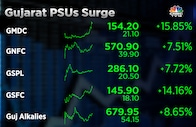The World Health Organization (WHO) on Tuesday said that a contaminated cough syrup made by an Indian company has been found in the Marshall Islands and Micronesia. As per the WHO Medical Product Alert, reference was made to a batch of substandard (contaminated) Guaifenesin Syrup TG Syrup, which is an expectorant used to relieve chest congestion and the symptoms of cough. The company, QP Pharmachem, has denied this claim.
The ‘substandard’ syrup was reported to
WHO on April 6. This comes after reports of a spate of child deaths linked to similar contaminated
cough syrups emerged in Gambia and Uzbekistan, respectively.
According to WHO, samples from the Marshall Islands were analysed by quality control laboratories of the Therapeutic Goods Administration (TGA) of Australia.
The analysis found that the product contained unacceptable amounts of diethylene glycol and ethylene glycol as contaminants. The stated manufacturer of the affected product is QP Pharmachem Ltd from Punjab and the stated marketer of the product is Trillium Pharma in Haryana.
In its alert, WHO said, “The product referenced may have marketing authorisations in other countries in the Western Pacific region. It may have also been distributed, through informal markets, to other countries or regions. The substandard product referenced in this Alert is unsafe and its use, especially in children, may result in serious injury or death. Toxic effects can include abdominal pain, vomiting, diarrhoea, inability to pass urine, headache, altered mental state and acute kidney injury which may lead to death."
Adding to the alert, WHO has recommended refraining from the usage of this syrup.
“WHO requests increased surveillance and diligence within the supply chains of countries and regions likely to be affected by these products. Increased surveillance of the informal/unregulated market is also advised. National regulatory authorities/health authorities are advised to immediately notify WHO if these substandard products are discovered in their respective country. Healthcare professionals should report any suspicious cases of adverse events linked to the use of these contaminated medicines to the National Regulatory Authorities/ National Pharmacovigilance Centre,” WHO added.
However, QP Pharmachem said WHO tested expired samples of the cough syrup and was dismissive of the results.
“Our company had dispatched a total of 18,336 bottles of the cough syrup in November 2020 and the shipment was only meant to be exported in Cambodia as per the order. We have no idea why WHO sent the samples to Australia for testing without any prior communication and now we are being framed in this allegation for contamination," Sudhir Pathak, MD, QP Pharmachem exclusively told CNBC-TV18.
"WHO has taken samples of the consignment which was supposed to reach Cambodia and had them tested at the Therapeutic Goods Administration (TGA) of Australia. All this happened without me and officials of our company being informed. Firstly, our medical product does not even match the standards and norms laid down by Australian FDA. The consignment was supposed to be delivered to Telpha Care in Cambodia but was deliberately landed in Micronesia and Marshall Islands,” he added.
According to Pathak, a week ago, he received a communication from the WHO regarding this. Later, the Punjab state FDA and Drug Controller General of India (DCGI) officials visited his manufacturing unit and conducted inspection and also took samples for further examination.
“We have to wait for at least 10-15 days for the reports to come in but we are confident of coming out clean in this,” Pathak added.






